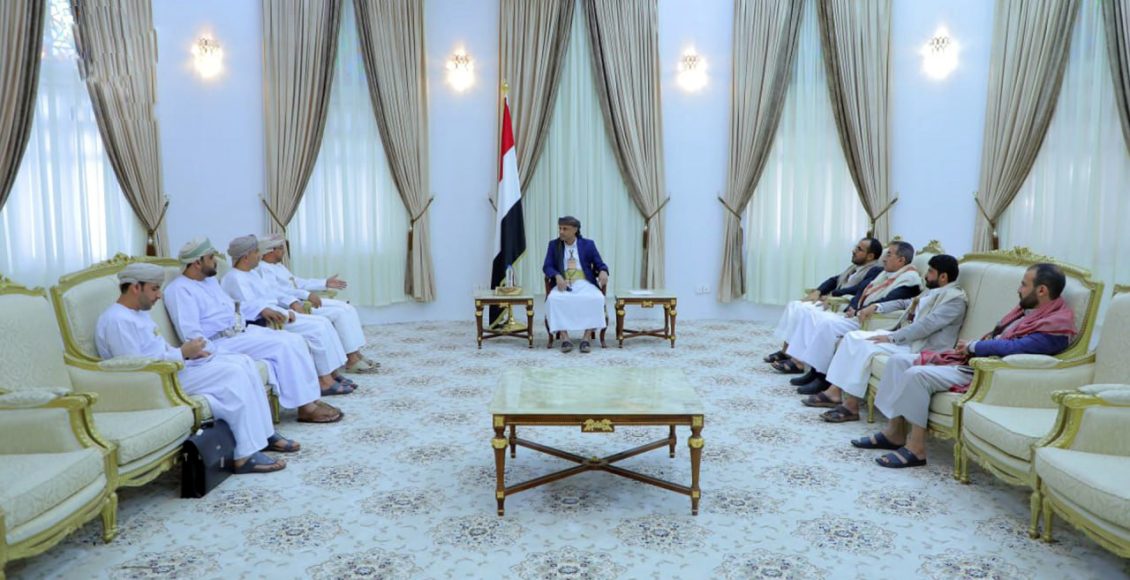The new round of negotiations between Yemen and Saudi Arabia began on Thursday, marking a significant milestone in the ongoing peace process. This round signifies the resumption of the direct consultative process that had been paused since the last round during Ramadan. The national delegation, accompanied by Omani mediators, returned to Sana’a to meet with the national leadership. The leadership agreed to direct the two delegations to Riyadh, the Saudi capital, to continue discussions. These discussions are guided by the fixed determinants of the national position, with a primary focus on addressing the humanitarian crisis.
This round of negotiations is distinct from its predecessors due to its decisive nature, leaving no room for deferring solutions or attempts to gain more time. The Saudi regime, which continues to present itself in the media as a sponsor for a solution among Yemenis, should take note of this.
Continued Support for Mediation Efforts
The resumption of the negotiation process comes weeks after Sana’a announced preparations for a new “decisive” consultation round. This round represents a last chance for the enemy and is keenly focused on ensuring the success of mediation efforts. The new round officially began with a short visit by the national negotiating delegation and Omani mediators to Sana’a. During this visit, they met with President Mahdi Al-Mashat who appreciated the efforts of Omani mediation and reiterated that peace remains the first choice that everyone should work towards.
President Al-Mashat confirmed Sana’a’s continued response to Omani mediation efforts by agreeing to direct the national delegation along with the mediating delegation to Riyadh. This agreement aims to complete the course of consultations that took place during the past period in Sana’a and Muscat.
Addressing Humanitarian Issues: A Top Priority
Mohammed Abdulsalam, head of the national negotiating delegation and spokesman for Ansar Allah, also confirmed that discussions on humanitarian issues represent an essential task for the national delegation in negotiations with Saudi Arabia and enemy countries. He expressed hope that serious discussions would take place for everyone’s interest and overcoming challenges.
The United States has been pushing towards sparing Saudi Arabia from peace commitments by linking entitlements of Yemeni people and their demands to condition conducting negotiations between Sana’a and mercenaries. This makes Saudi Foreign Ministry’s statement an indicator of Riyadh’s continued commitment to American position.
Saudi Arabia’s Role in Negotiations
In response to Saudi Foreign Ministry’s statement, Mohammed Ali Al-Houthi, member of Supreme Political Council, renewed confirmation that dialogue can only be with aggression coalition; considering decision to end war and siege is in its hands. He added in a tweet that “negotiation with Saudi continues; considering it as leader of aggression coalition and with Omani mediation”, in a clear indication that there is no room for presenting Saudi regime as mediator among Yemenis.
Despite some observers interpreting Saudi Foreign Ministry’s statement as a media attempt to avoid acknowledging reality of Sana’a’s victory, the statement remains a question mark and an indicator of non-seriousness that cannot simply be ignored given all previous experiences.
The truth is that considering Saudi Arabia as a “mediator” has been a major obstacle in the negotiation process over the past period, and it has been responded to by the revolutionary and political leadership on several occasions with explicit and decisive confirmations that Riyadh is primarily responsible for the aggression and that its attempts to evade peace commitments by claiming “mediation” will not succeed, and will not avoid the repercussions of negotiation failure.
Therefore, Saudi Arabia still needs to prove its cessation from implementing American desires, which leader of revolution Sayyed Abdulmalik Badreddin Al-Houthi warned earlier that its consequences would be dire for Riyadh.
As these negotiations continue, it is clear that there are many challenges ahead. The humanitarian crisis in Yemen remains dire, with millions suffering from food insecurity and lack of access to basic services. The ongoing conflict has only exacerbated these issues, making it even more crucial for these negotiations to succeed.
The role of external actors such as Oman and the United States will also be crucial in this process. Oman’s role as mediator has been appreciated by both sides, but it remains to be seen how effective they can be in bringing about a resolution. On the other hand, U.S.'s push towards sparing Saudi Arabia from peace commitments raises questions about their role and intentions in these negotiations.
Furthermore, it is important to note that these negotiations are not just about ending conflict - they are about addressing deep-rooted issues such as sovereignty, unity, independence and most importantly - addressing humanitarian issues. As Mohammed Abdulsalam pointed out - discussions on humanitarian issues represent an essential task for them in these negotiations.
In conclusion, while this new round of negotiations marks a significant step forward in Yemen’s peace process - there are still many challenges ahead. The decisive nature of this round leaves no room for deferring solutions or attempts to gain more time - making it even more crucial for all parties involved to work towards a resolution. The world watches on with bated breath, hoping for a peaceful resolution to one of the worst humanitarian crises of our time.







